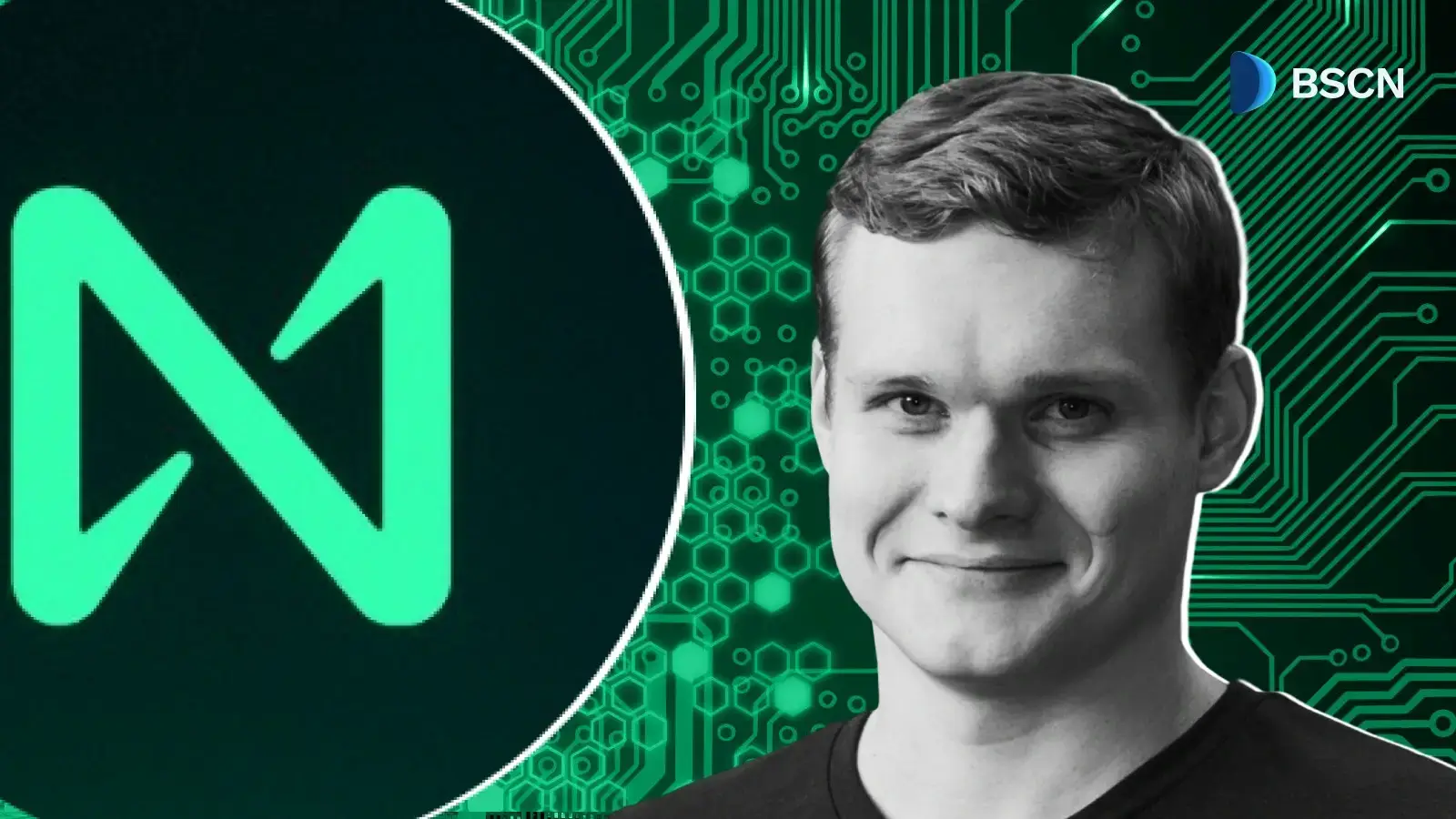What is Chainlink’s Confidential Compute?

Confidential Compute introduces privacy to onchain finance, helping institutions process sensitive data securely using Chainlink’s infrastructure.
Miracle Nwokwu
November 10, 2025
Table of Contents
Chainlink unveiled its Confidential Compute service on November 8, 2025, marking a step forward in addressing privacy challenges within blockchain technology. This new offering aims to enable private smart contracts across various blockchains, allowing institutions to handle sensitive data without exposure. The service integrates with Chainlink's existing tools to support confidential transactions and computations, which could broaden the appeal of onchain finance for larger players.
During the SmartCon 2025 event, Lorenz Breidenbach, head of research at Chainlink Labs, highlighted the role of Confidential Compute in bridging privacy gaps for institutional adoption. He explained that without robust privacy measures, bringing traditional banking and capital markets onto blockchains remains difficult, as firms need to safeguard client information, trading strategies, and operational details.
The Role of Privacy in Onchain Systems
Blockchains operate on principles of transparency, where every transaction and smart contract is publicly verifiable. While this design fosters trust and open participation by eliminating the need for intermediaries, it also creates hurdles for financial institutions. Sensitive elements, such as business logic or client data, risk exposure in a fully open environment, which has slowed broader institutional involvement.
Chainlink's co-founder has noted that privacy represents a critical element for cryptocurrency to achieve widespread use, emphasizing its importance in unlocking mainstream applications. Traditional financial systems rely on confidentiality to maintain competitiveness and comply with regulations, from capital markets to derivatives trading. Without similar protections onchain, tokenizing complex assets—like private credit or fund allocations—becomes impractical, as investor details or pricing terms could leak.
Confidential Compute seeks to resolve these issues by combining privacy with blockchain's inherent verifiability. It builds on prior innovations from Chainlink Labs, including technologies like Town Crier and DECO, to create a framework where proprietary data stays hidden during processing. This approach avoids the trade-offs often seen in isolated privacy-focused blockchains or specialized cryptographic methods, which can limit interoperability or performance.
Core Features and Architecture
Chainlink Confidential Compute operates through the Chainlink Runtime Environment (CRE), an orchestration layer that manages workflows across blockchains and external systems. CRE handles data inputs, API connections, compliance checks, and cross-chain interactions, now enhanced with confidential computing to keep elements like business logic and external connectivity private throughout the process.
Two key innovations distinguish this architecture. First, decentralized secrets management uses Chainlink Distributed Key Generation (DKG) and the Vault Decentralized Oracle Network (DON). Secrets, such as API credentials or proprietary data, are threshold-encrypted and distributed among independent node operators. When needed for a workflow, nodes provide decryption shares only after verifying authorizations and attestations. The system ensures that no single entity can access the full secret, with the enclave discarding it immediately after use.
Second, the framework supports flexible confidential workflow execution. Initially, it employs trusted execution environments (TEEs) for efficient processing, isolating data at the hardware level to minimize computational overhead compared to methods like secure multiparty computation or fully homomorphic encryption. Users access only the necessary information under a need-to-know model, which enhances security without sacrificing speed. Future iterations plan to incorporate other technologies, such as zero-knowledge proofs, as they advance, giving developers choices based on specific requirements.
Every workflow generates cryptographic attestations, verifying the execution without revealing details. These can include encrypted data for auditors or regulators, adding layers of auditability while preserving confidentiality. This end-to-end verifiability aligns with blockchain standards, allowing users to confirm operations securely.
Practical Use Cases
Chainlink Confidential Compute opens doors to several applications that were previously limited by privacy concerns. For instance, it supports private transactions where details like amounts or positions remain concealed, enabling confidential value exchanges onchain.
In tokenization of real-world assets (RWAs), institutions can bring instruments such as bonds or private credit pools onto blockchains without disclosing investor information or deal terms. This expands beyond straightforward assets like Treasury bills to more intricate financial products requiring discretion.
Data providers benefit from confidential data distribution, where proprietary information—benchmark indices or valuations—is shared only with approved subscribers. Smart contracts can perform operations on this data without exposure, facilitating monetization while triggering automated actions like token trades.
Cross-chain interoperability gains privacy features, allowing transactions between public and private blockchains without revealing data to node operators. Use cases include delivery versus payment settlements, where tokenized assets and stablecoins on different chains interact seamlessly.
For identity and compliance, the service verifies credentials using existing providers without onchain exposure. It can issue simple yes/no attestations or act as a credential re-certifier for efficient onchain checks, supporting regulations like KYC and AML while maintaining user privacy.
Additionally, confidential API access handles sensitive interactions, such as payments or market feeds. Credentials are decrypted only within the TEE, used briefly, and discarded, preventing leaks. This extends to complex scenarios, like processing encrypted credit card details for transactions.
Examples from Chainlink's ecosystem illustrate these capabilities. Collaborations with ANZ and ADDX have used similar privacy tools to enable cross-border tokenized asset access, meeting confidentiality needs through private transactions.
Benefits for Users
The service offers privacy-preserving connectivity, letting users integrate existing data and systems with blockchains without exposure. It works across public and private chains, avoiding vendor lock-in and enabling broad deployment.
Decentralized secrets management reduces risks by exposing only minimal data per computation. Verifiable computing, backed by multi-cloud setups and encryption, meets institutional security needs. Cryptographic attestations provide proof of correct execution, fostering trust in private workflows.
Overall, these elements create a scalable foundation for onchain markets, blending privacy with performance and interoperability.
Availability and Next Steps
Early access to Chainlink Confidential Compute via CRE is slated for early 2026, with general availability following later that year. Interested parties can review the whitepaper for technical details.
The architecture's flexibility positions it for future enhancements, incorporating emerging privacy technologies as they mature.
By addressing privacy barriers, Confidential Compute contributes to the maturation of blockchain finance, potentially accelerating institutional participation through secure, verifiable tools.
Sources:
- Chainlink Confidential Compute Overview (Chainlink Blog): https://blog.chain.link/chainlink-confidential-compute/
- Confidential Compute Whitepaper (Chainlink Research): https://research.chain.link/confidential-compute.pdf
- Chainlink Runtime Environment (CRE) Documentation: https://chain.link/chainlink-runtime-environment
- Town Crier Protocol (Chainlink Research): https://research.chain.link/town-crier.pdf
- DECO Protocol (Chainlink Research): https://research.chain.link/deco.pdf
Read Next...
Frequently Asked Questions
What is Chainlink Confidential Compute?
Chainlink Confidential Compute is a service that adds privacy to onchain finance, enabling institutions to process sensitive data securely using Chainlink's infrastructure for private smart contracts across blockchains.
What are the core features of Chainlink Confidential Compute?
Key features include decentralized secrets management via Chainlink DKG and Vault DON, flexible confidential workflow execution using TEEs, and cryptographic attestations for verifiable execution without revealing details.
What are some use cases for Chainlink Confidential Compute?
Use cases include private transactions, tokenization of real-world assets like bonds, confidential data distribution for providers, cross-chain interoperability, identity and compliance verification, and secure API access.
Disclaimer
Disclaimer: The views expressed in this article do not necessarily represent the views of BSCN. The information provided in this article is for educational and entertainment purposes only and should not be construed as investment advice, or advice of any kind. BSCN assumes no responsibility for any investment decisions made based on the information provided in this article. If you believe that the article should be amended, please reach out to the BSCN team by emailing [email protected].
Author
 Miracle Nwokwu
Miracle NwokwuMiracle holds undergraduate degrees in French and Marketing Analytics and has been researching cryptocurrency and blockchain technology since 2016. He specializes in technical analysis and on-chain analytics, and has taught formal technical analysis courses. His written work has been featured across multiple crypto publications including The Capital, CryptoTVPlus, and Bitville, in addition to BSCN.
Crypto Project & Token Reviews
Project & Token Reviews
Comprehensive reviews of crypto's most interesting projects and assets
Learn about the hottest projects & tokens




















